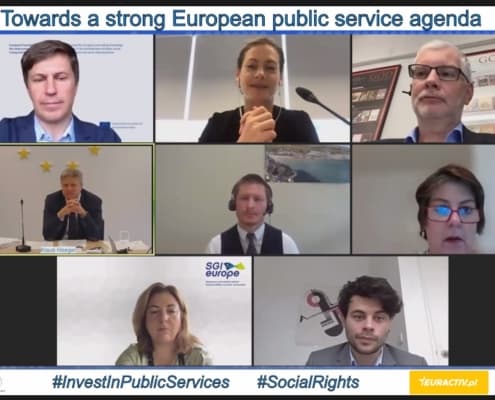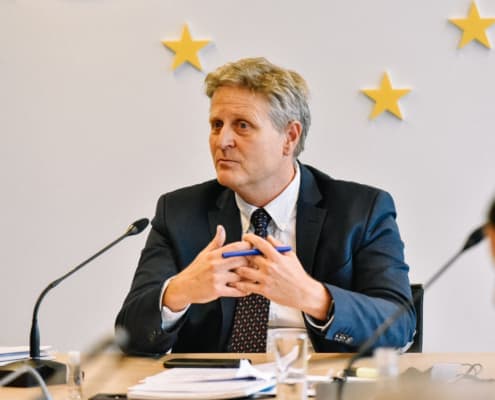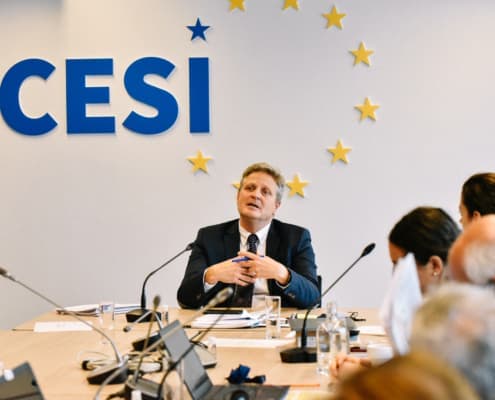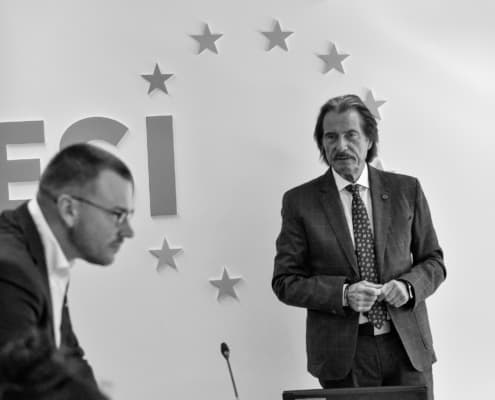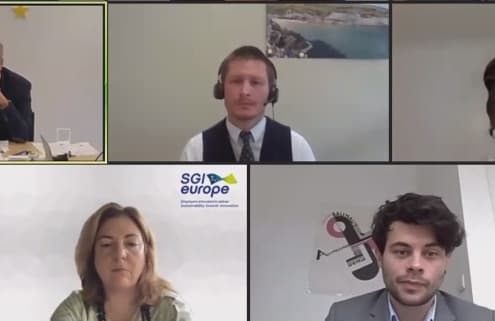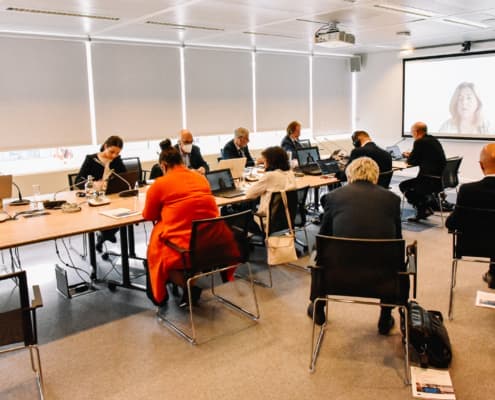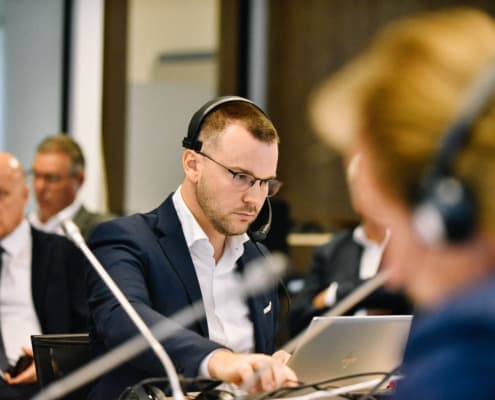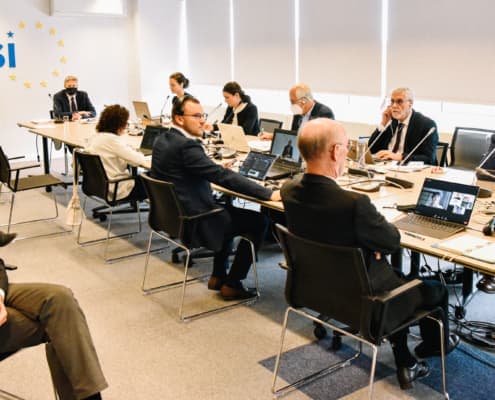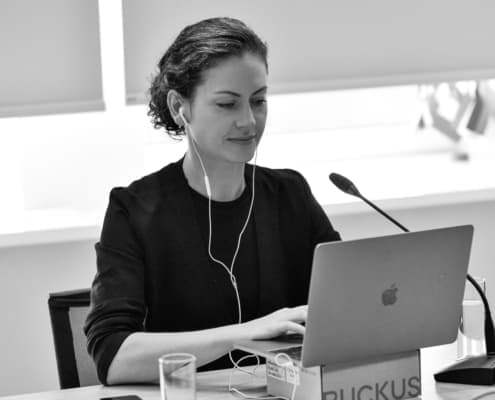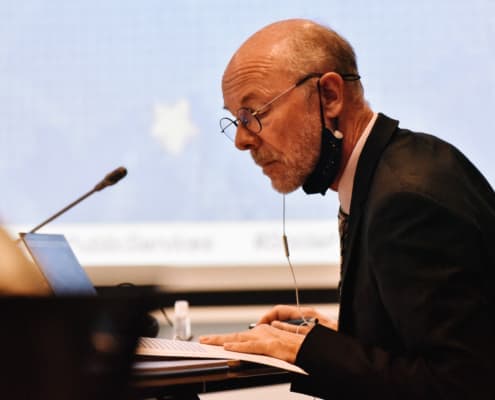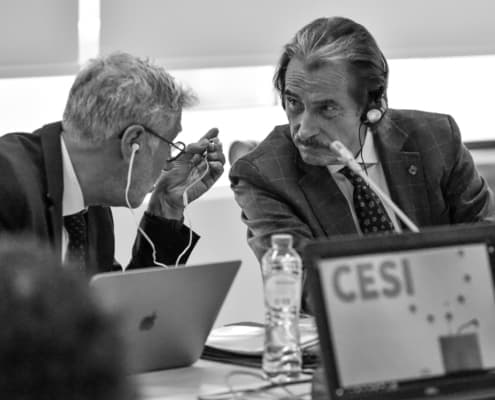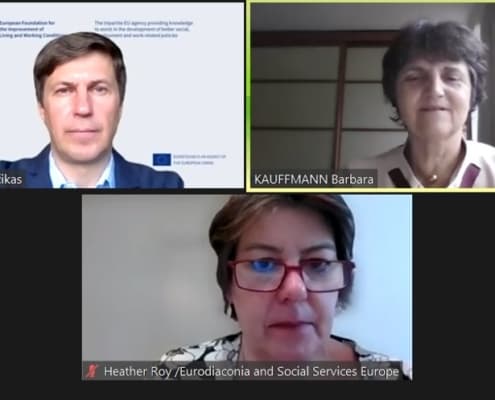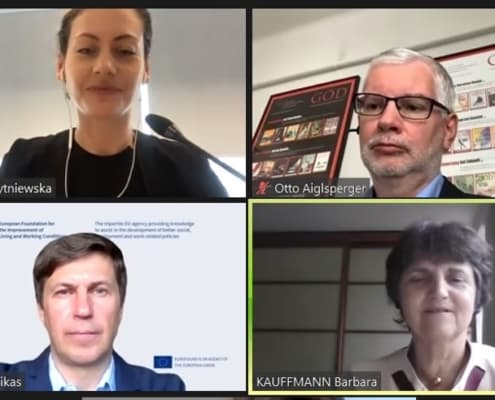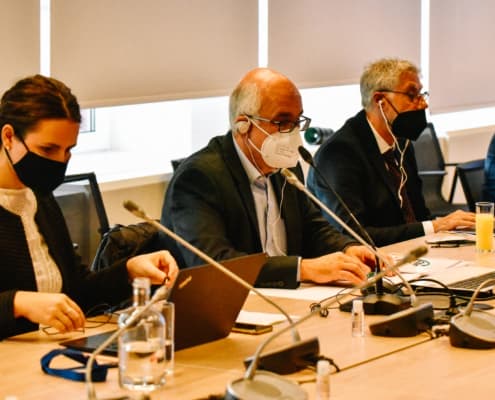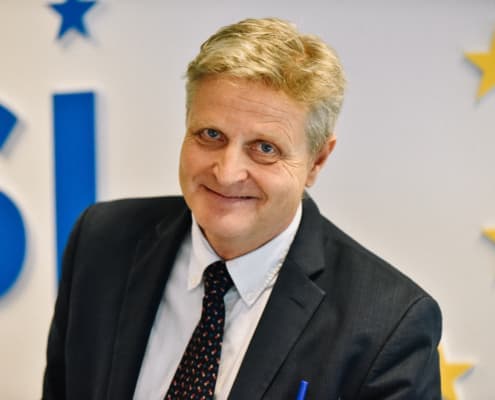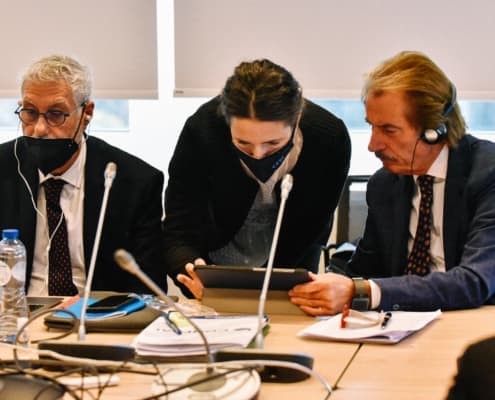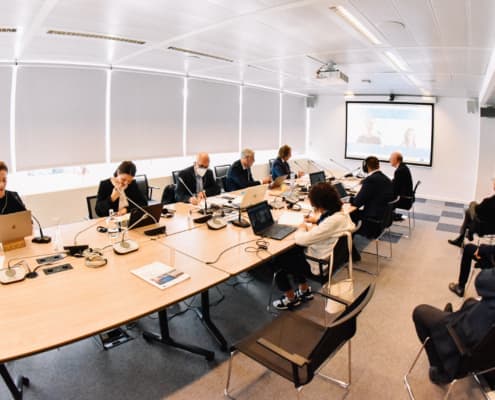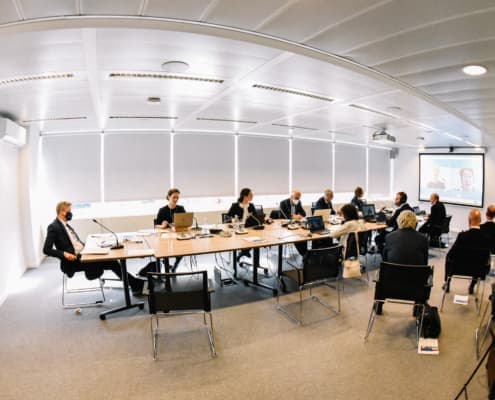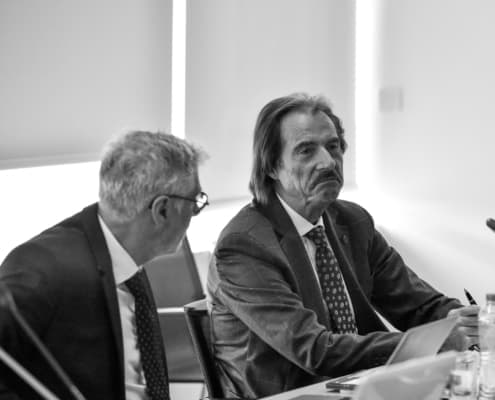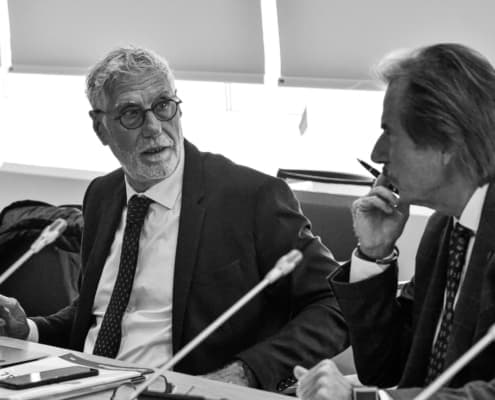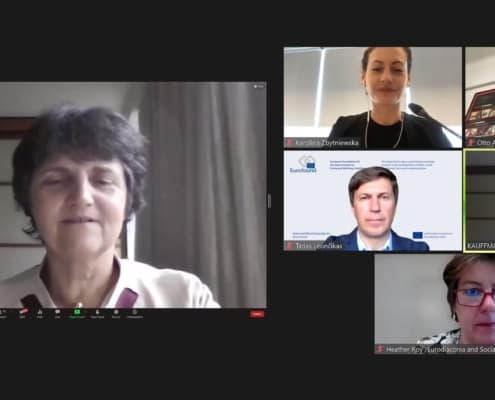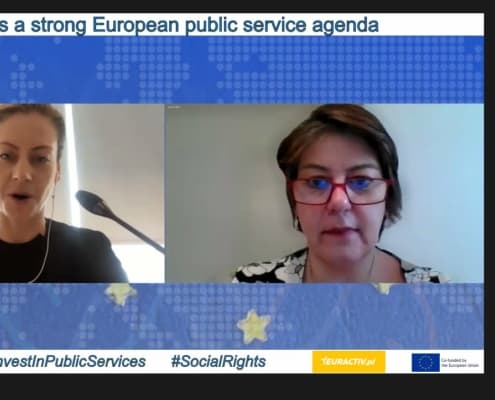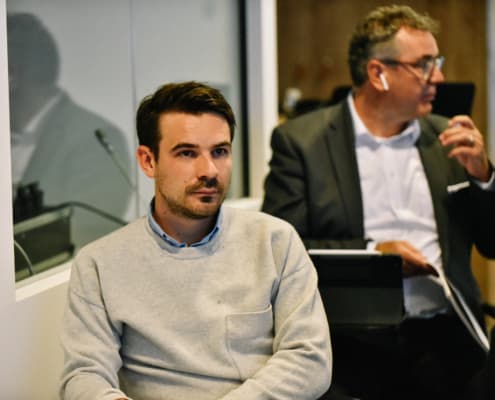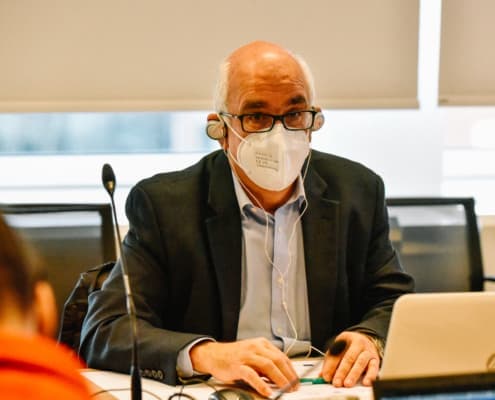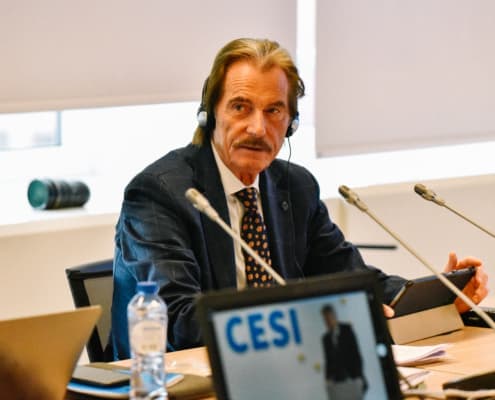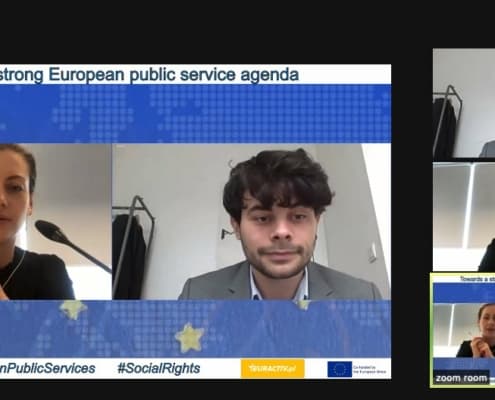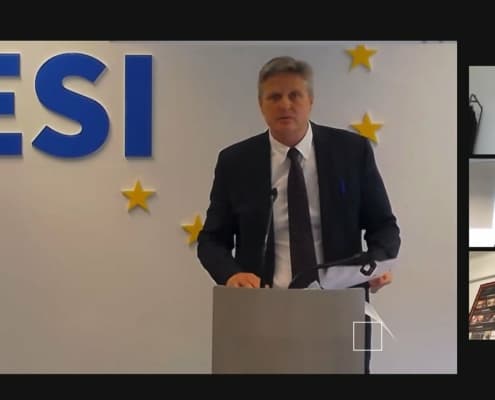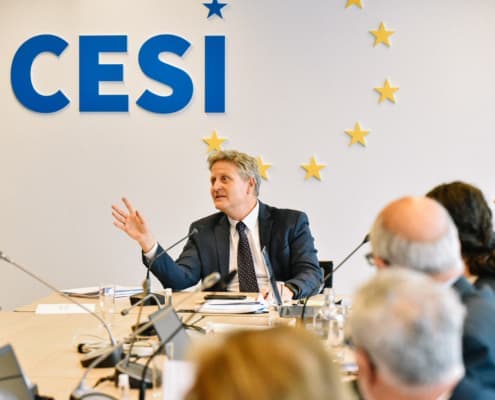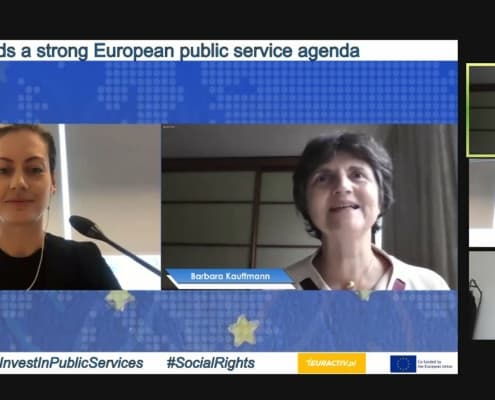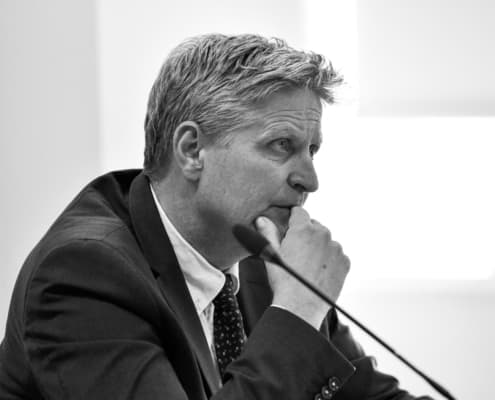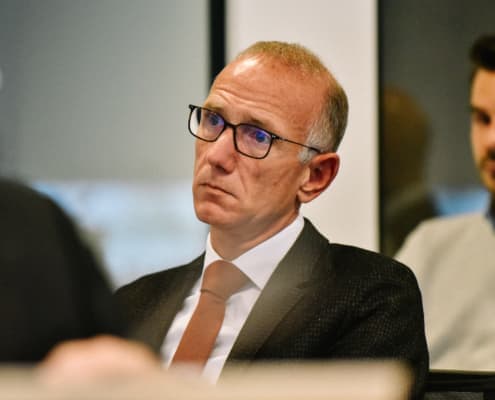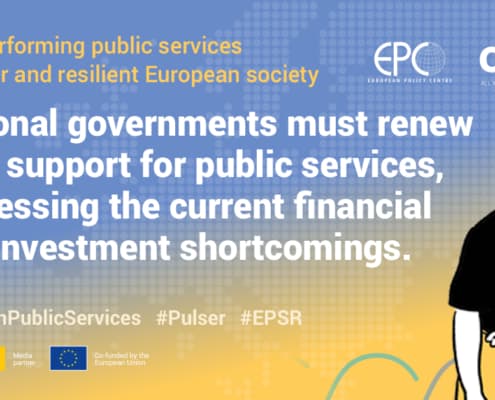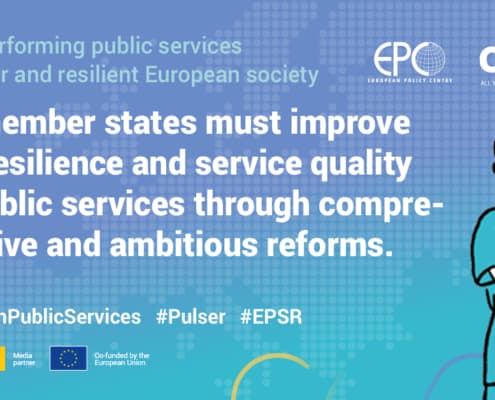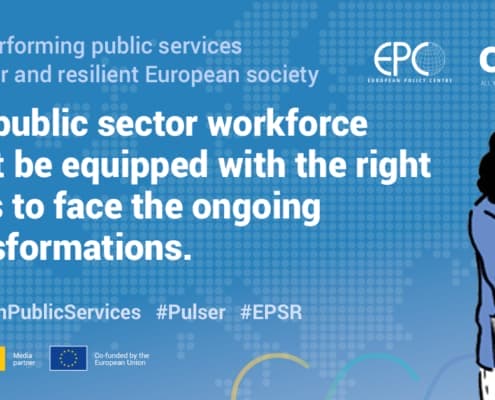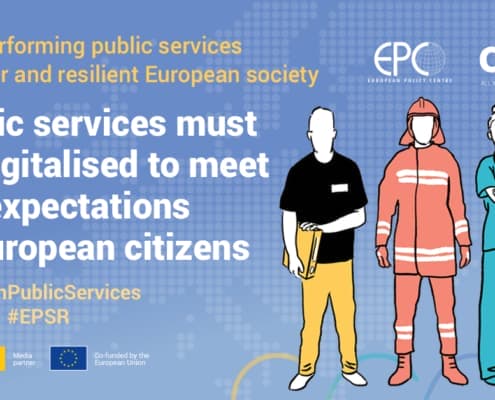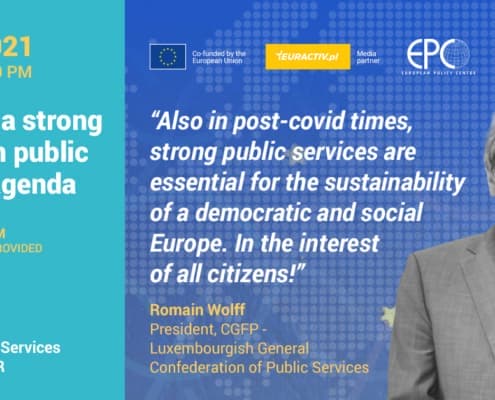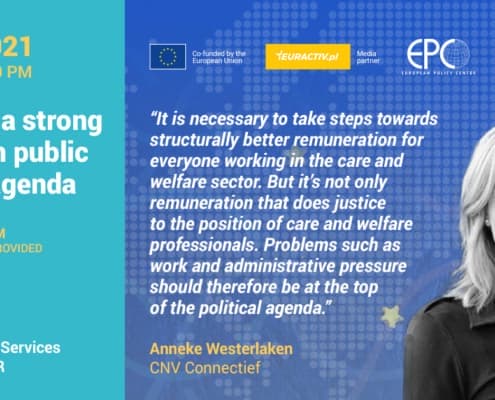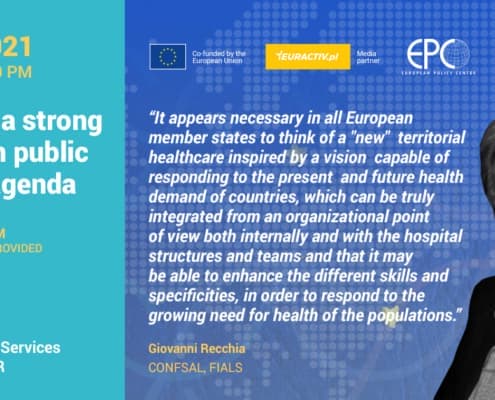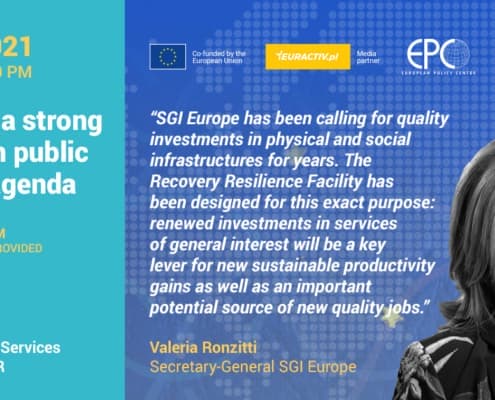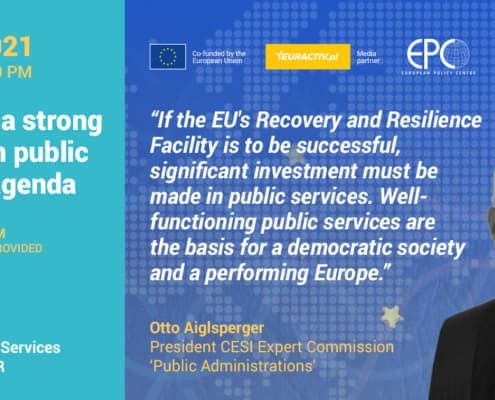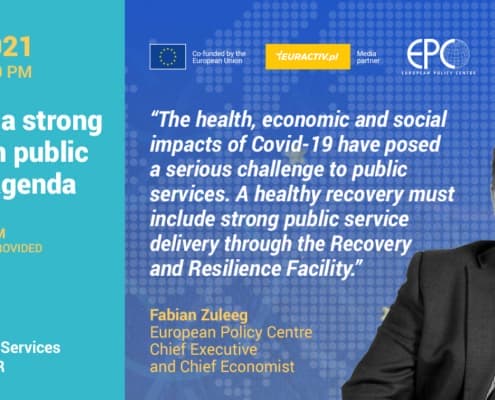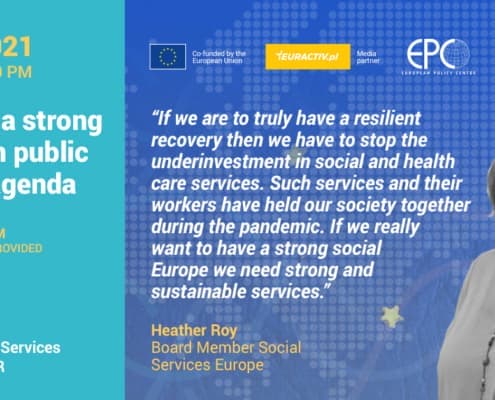2021-10-07 10:47
On October 5, CESI held a timely conference, co-funded by the European Union and in partnership with the European Policy Centre, on the role of public services in building a more resilient and socially fair Europe after the Covid pandemic.
On October 5, CESI held a timely conference, co-funded by the European Union and in partnership with the European Policy Centre, on the role of public services in building a more resilient and socially fair Europe after the Covid pandemic.

The Covid pandemic once again showed how societies depend on the efficiency of public services and reminded everyone of the value of long-term planning and crisis preparedness of the public sector. Public services care, protect and deliver. They determine whether societies are sustainable, protect the most vulnerable members of our societies and economies, and contribute to the improvement of citizens’ economic prosperity and well-being. And as for Europe, public services are a key for the realisation and implementation of the European Pillar of Social Rights.
In this context, the European Confederation of Independent Trade Unions (CESI) organised a discussion on the lessons learnt from the Covid pandemic and further recent crises and the central role of the public sector in creating a more sustainable future, with the participation of high-level policy makers and trade union representatives. Some of the key messages of the speakers:
- CESI Secretary General Klaus Heeger opened the debate, referring to the need to invest in the services of the public sector: ‘Covid-19 exposed the structural weaknesses of the public sector. Now it’s time to put public services at the core of our policies! We need to invest in the facilities, equipment and staff of public services!’
- Tadas Leončikas, Senior Research Manager at Eurofound presented the current challenges for public services focusing on the long-term care sector.
- Barbara Kauffmann, Director for Employment and Social Governance at the European Commission, said: ‘We have some positive signs that our economies are recovering. Public services will play a key role in this transition period!’
- Otto Aiglsperger, President of CESI’s Expert Commission ‘Public Administrations’, stressed the need to support the people working in public services: ‘What we need from now on is to have a clear employment legislation that will be able to protect the workforce of the public sector!’
- Representing employers and providers of services of general interest, Valeria Ronzitti, Secretary General of SGI Europe, focused on the well-functioning of public services and reminded that ‘public services are there to serve the citizens.’
- Heather Roy, Board Member of Social Services Europe, said that the pandemic created an important momentum for the public sector: ‘Before the crisis many services of the public sector were undervalued. This has changed!’
- Mihai Palimariciuc, Policy Analyst at the European Policy Centre and co-author of the EPC study on ‘Well-performing public services for a fair and resilient European society’, explained that next to the necessary investments in the public services, there is also a need for more social innovation.’
- Peter Ulrich, Scientific Project Officer at the Joint Research Centre of the European Commission introduced some of the most important challenges that digitalisation will bring to public services.
- Dragoș Pîslaru, Member of the European Parliament (Renew Europe), shared his vision for a new EU social contract that will enhance the role of public services.
- Finally, Fabian Zuleeg, Chief Executive of the European Policy Centre, concluded: ‘Public services were already under pressure before the pandemic. However, Covid-19 gives us an opportunity to bring forward the strength and added value of public services.’
The EPC study on ‘Well-performing public services for a fair and resilient European society’ provided the background for the discussions and can be accessed here. Τhis event was held in the framework of the EU-funded PULSER project and was the launch of a broader campaign of CESI advocating for more investments in the public services.

